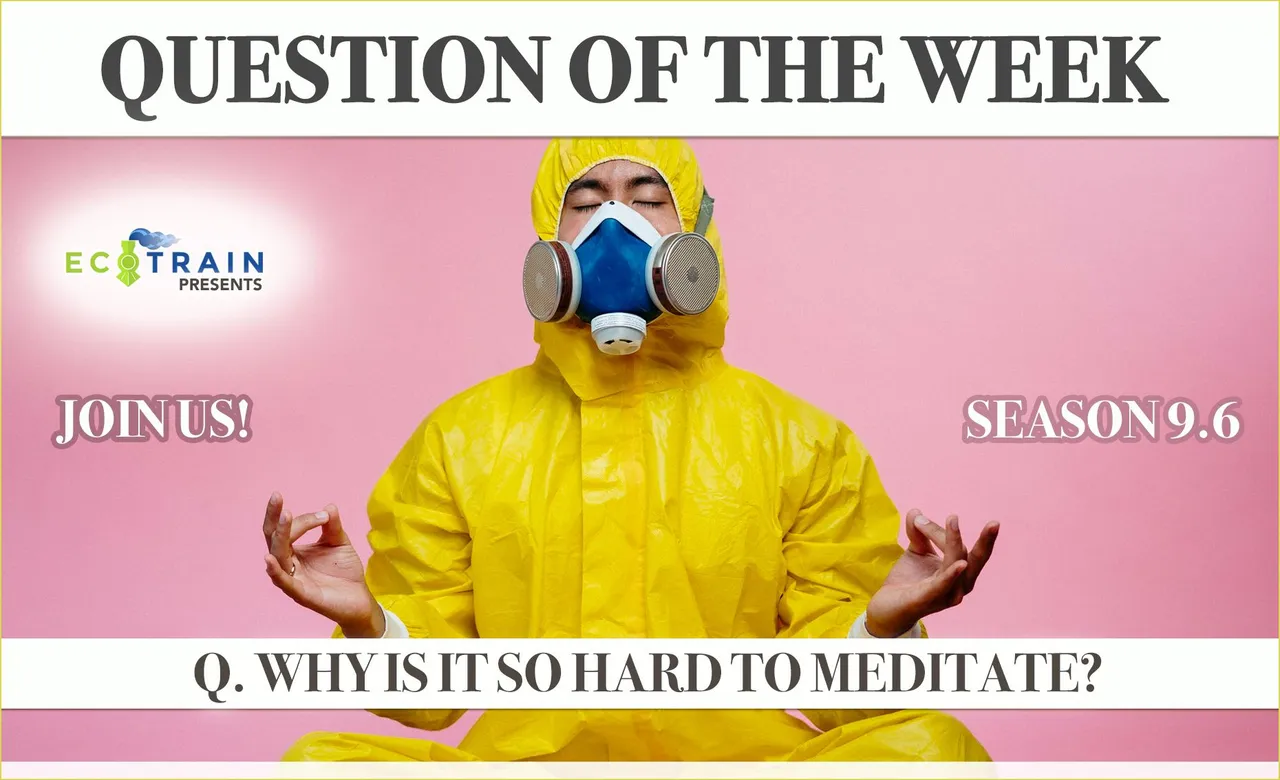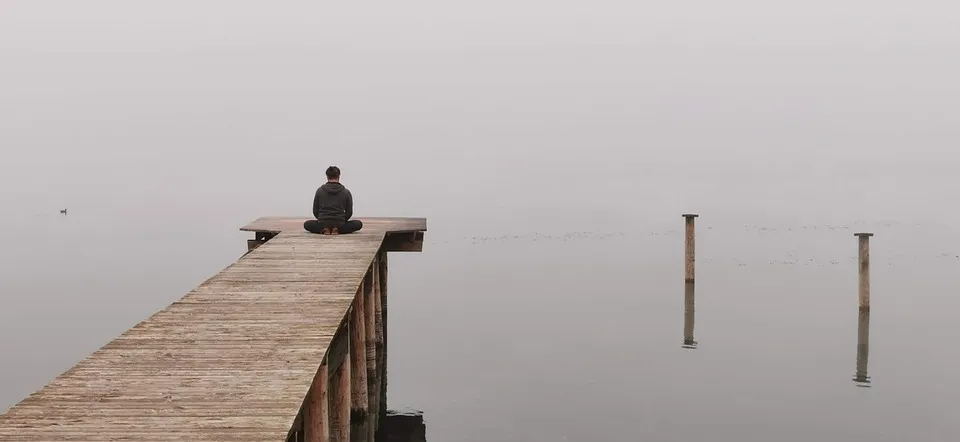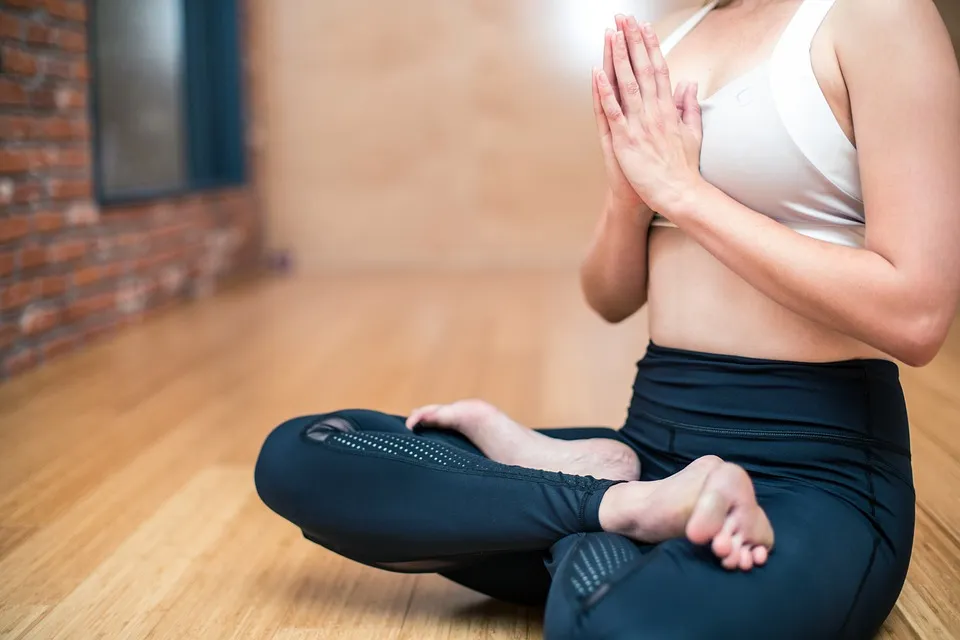I know, it's been a while since I tackled a QOTW by @ecotrain. However, this week's question, why it is so hard to meditate, I just can't miss without sharing my ideas and views on, at the risk of being called a fool, or simply wrong, or something like that. A-ha, this is actually it! Inadvertently I may have given away the answer to this QOTW already.
What Do We Mean By Meditation?
Okay, and here we go... Right at the start I'm running into this obstacle of defining the subject matter. Because it is not that obvious! Apparently there are many ways of looking at this practice of "looking inward", as the prompt post mentions at the very beginning. Thank you, by the way, for clearing up this confusion! If it weren't for that I may not even have started this reply post.
To be perfectly honest, my idea of meditation, together with other esoteric and spiritual practices from ancient Asian traditions, have always seemed highly formidable for me. Considering the depth and mystic nature of these practices, I have always felt I am not ready for them, not experienced or knowledgeable enough, and no matter how much I read about them, I would probably never really understand them, and thus not get the meditation right. Oh no, the horror! And please don't get me started on surrendering my ego! That is one thing I have never been able to get the why, let alone the how, though even the what seems hazy. So I think this can be taken as one good reason why meditation is perceived so hard.
What If I Don't Get It Right?
First of all, I can't bend my legs sufficiently to place my feet on top of my thighs into a perfect lotus. Not by a long shot. Even if I managed, I can't see myself holding the position for long, let alone relaxing for meditation. But is that really important? Isn't it enough to sit down cross legged with my feet under my thighs? Or how about sitting down on a regular (arm)chair, Euro-style? Purists would probably say no, but I'm way past paying much heed to them. And if they say that whatever I do is anything but meditation, well then so be it. I'll just call it relaxation.
Over time I have adopted a practice of practicing exactly this relaxation, meaning sitting in silence, usually with my eyes closed (though not exclusively), focusing on my breathing, with peace at mind. And it has helped me a lot, mostly to reserve a calm head when things get too chaotic out there. Also, it provides a kind of assurance that things will be all right, no matter how bad they may seem. Plus, I believe it helps me plan things, by taking a step back, assuming a bird's perspective on things, and thus be more rational in my thoughts. But for sure, it took me a while to get here.
The Difficulty Of The Practice
Back when I was still trying to "meditate correctly" I ran into a bunch of issues and questions, such as What if my nose starts to itch? or Do I have to keep my eyes closed?, or the big one: How can I think of simply nothing? And yes, these can keep you from meditating all together, and therefor make you miss out on the great benefits. So I wish I would have taken my own advice much sooner, to stop caring about these things. If your nose starts to itch, you are always free to scratch it. (And guess what: with this attitude it never even started itching!) Closing my eyes is nice if there are too many things going on in front of it. But if there is nothing but a white wall, you may as well keep them open. Conversely, if I'm looking at a landscape, where nothing ever happens, except for a million minute far-away details, I find it also more helpful to just keep them open. Though I think the best things to look at while meditating are either a campfire, or a flowing stream. In those cases keeping my eyes closed seem like a waste to me.
Clearing my mind is a similar thing for me. It may be hard to blank it out and just BE as they say. At least for me, there is always something to pass through my mind. So chasing away thoughts seem like the wrong approach to me. Instead, I tried to occupy my mind in focusing on the things I thought were important at the moment of meditation: my breathing was one of these things, the constant in-and-out, making it slow and deep, extending it always just a bit further. That was already quite helpful. But then I realized how helpful active visualization can be, and my time of meditation was perfect for it. This is what is analogous to prayer, or practical magic, or strategic planning, or any other way you may want to describe manifesting things in your life.
Keeping Up The Routine
Just like with many other habits, whether they may be good or bad, you need to practice them consciously for a while before they become part of your daily routine. And yes, sitting in silence for a while may not be that easy, especially if you are not used to it. This could be another common reason why people find it hard to meditate. It has been for me, but only at the start. After a while the peace and clarity it brings, which also needs time to become evident, is a motivating enough factor to actually sit down and just do it. But until then, you need to take time to do it, reminding yourself consciously at each occasion, without seeing immediate results. So yes, this simple factor has kept me from meditating many times... but each time a little less!



